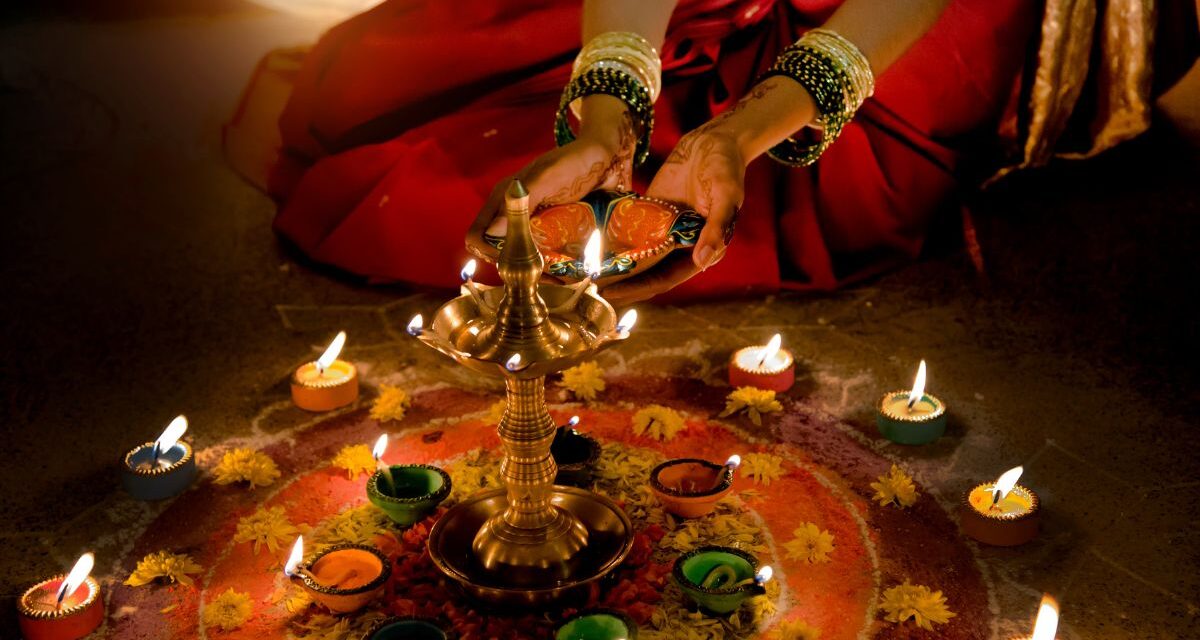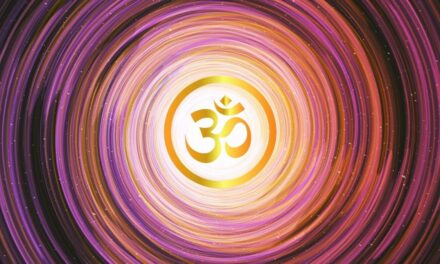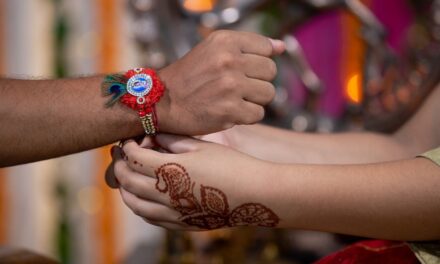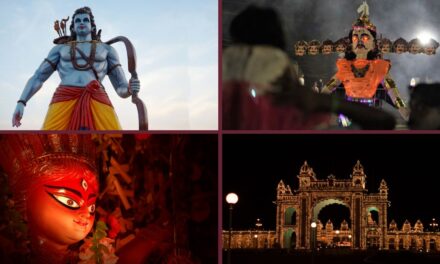Introduction and Significance of Diwali
Diwali, also known as Deepavali, is an Indian Hindu festival. It is popularly known as the festival of lights.
Diwali is the most important festival in Hinduism and is also celebrated by Jains and some Buddhists. It should be noted that while Sikhs do celebrate Diwali, they are actually celebrating ‘Bandi Chhor Diwas’ which coincides with Diwali.
The festival is celebrated over five days although only one day falls under the main day of Diwali. The rest of the days have an important significance of their own including celebrating the new year for many Hindus.
During Diwali, households perform puja (ritual to worship God), decorate the entire house with elaborate lighting and also light diyas all over the house. Diyas are small earthen lamps made of clay, hand painted in various colours and lit using oil and cotton wicks.
The glow from the diyas that are lit in each and every Hindu household across the country is simply mesmerizing and is one of the reasons why Diwali is referred to as the festival of lights.
The puja performed in the house is primarily to worship and honour Goddess Lakshmi. Many families prefer inviting a priest from a temple to perform the puja as it involves a number of rituals.
There is also a tradition to burst fire crackers during the days of Diwali.
Diwali is the celebration of good over evil, vanquishing of the dark by the light. According to Hindu scriptures, it is also the day Lord Ram returned to the kingdom of Ayodhya after defeating Ravana. To welcome him back, the people of Ayodhya lit clay lamps to light up the entire kingdom and create a festive atmosphere.
Even today, Diwali is a festival that brings people together with an incredible festive spirit in the air and there is exchange of gifts and Indian sweets.
People wear new clothes, get their houses cleaned, buy new things such as cars or furniture or start new business ventures during the auspicious day of Diwali.
For most Indians, it is the best time of the year and there are elaborate lightings put up in the streets, residential complexes, buildings and individual houses. Many families also put up a kandil (lantern) made of cloth and using electric bulbs outside their home along with colourful rangolis on the floor. Rangolis are Indian art made of coloured powder on any flat surface.
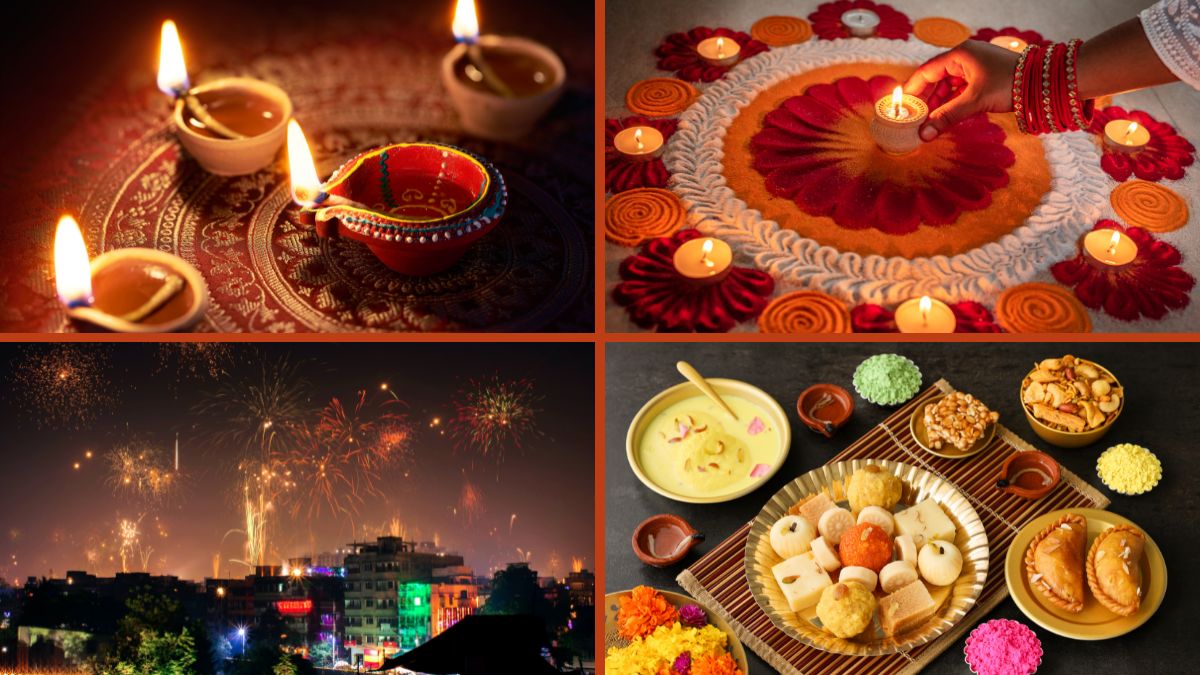
When is Diwali Celebrated?
Diwali is celebrated each year either during the later half of October or in the first half of November.
The dates are chosen as per the Hindu calendar and it falls during the Hindu month of Kartik. The main day of Diwali is on the new moon day during the lunar month. New moon day is also known as Amavasya in Sanskrit.
History, Origins and Legends of Diwali
Diwali is one of the oldest festivals in India. While there have been references to the celebration of Diwali in both Hindu and Jain culture since the ancient times, it is believed to have started about 2500 years ago.
Origins and legends with respect to Diwali is different based on the religions that celebrate the festival.
In Hinduism, there are three popular beliefs. First, it is to celebrate the time when Lord Ram, Sita and Lakshman returned to the kingdom of Ayodhya after 14 years of exile and defeating the evil king Ravana. It is said that the entire kingdom was lit up with beautiful diyas and there were grand celebrations to mark the return of Lord Ram.
Second, many Hindus celebrate Diwali as the day when Goddess Lakshmi, the Goddess of Wealth and Prosperity was born. It is believed to be also the day she agreed to marry Lord Vishnu. It is one of the reasons why Hindus prefer to start any new activity or buy new things during Diwali to gain the blessing of the Goddess and remove any obstacles in their path.
Third, some Hindus especially from eastern regions of India including Bengali culture also pray to Goddess Kali during Diwali. Goddess Kali is the vanquisher of all evil and her blessings are sought to lead a life of peace, security and one that gravitates towards the light
In Jainism, Diwali is a celebration of Mahavira Nirvana Divas. It is celebrated to mark the physical death of Mahavira to achieve final nirvana. Diyas are lit in honour of Mahavira who was seen as the great light.
In Sikhism, Diwali day is actually celebrated to mark Bandi Chhor Divas. It is believed to be the day Guru Hargobind arrived at the Golden Temple in the city of Amritsar after being released from prison by the Mughal emperor Jahangir.
Social Impact of Diwali on Indian Society
Festivals in India and the manner in which they are celebrated have always been an important instrument for promoting social harmony.
Considering the scale at which Diwali is celebrated across most parts of India, it has become the key driving factor in bringing people together.
The festive spirit during Diwali is unmatched in the country. It is an entire week of joy and togetherness.
It is also heartening to see the exchange of sweets and good wishes between other faiths and religions that do not celebrate Diwali but join in on the festivities. It shows the true nature of India and its people.
Diwali has also become vital for economic activities. Several ventures are started during the festival. Commercial and retail stores see a huge increase in sales and in general, economic activities either go to a new level or get rejuvenated in case of a slow year otherwise.
Diwali has also indirectly helped in other aspect of society. For example, since traditionally people burst crackers during the five days of the festival, environmental groups used the occasion to educate people on pollution and effects of harmful chemicals on our environment.
Today, a lot of people believe we should not burst crackers during any religious festivities as well as on occasions such as weddings, new year celebrations, events etc.
On that regard, there has been a shift back to the roots with increased use of diyas, environment friendly lighting and other decorations.
Final thoughts
Diwali is the biggest and one of the oldest festivals in India. Nothing in the country can match the scale and grandeur with which Diwali is celebrated.
The lighting of diyas and kandils across most homes in the country is a mesmerising sight.
For Indians, Diwali is a time for togetherness, for love, for family and friends, for starting new ventures and choosing the light over the darkness.

